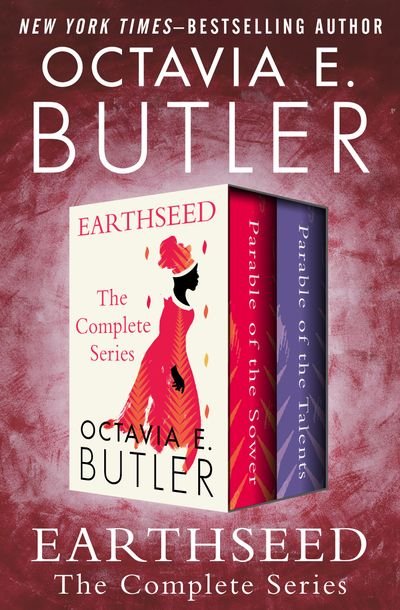Rereading Earthseed in a Time of Planetary Change
Whatever I happen to be working on, I usually find myself needing an antidote in my reading, something that works against the grain of the writing.
Being in the depths of nonfiction at the moment, I needed to read fiction. But I wanted to read fiction that was capable of speaking to reality in the way that Richard Power’s Overstory did for me.
That is why I find myself rereading Octavia Butler’s iconic Earthseed novels, Parable of the Sower and Parable of the Talents.
These books were published in 1993, when the oil companies knew about global warming and were doing their best to make sure that the rest of us didn't. We talk now about how the climate crisis impacts social and political fabrics and rips stable systems apart, but that’s exactly what happens in Butler’s novels.
This is where we are, still, in 2022.
“…we came home and wrapped our community wall around us and huddled in our illusion of security.”
In 2016, Amitav Ghosh called the decade of the 2010s, with its blissful incomprehension of climate change, The Great Derangement. He termed it a failure of the imagination.
The characters in Butler’s novels are pushing against that inevitability. Her future California, with its after-burn landscapes in which fire is illegal, with its massive displacements, sometimes feels like the here and now, at other times at least a plausible future. This is a wide, generous imagination at work, underpinned by empathy and the idea of hope. The framing of the vehicle for change as religion as the search for new worlds altogether, seems less important that the values it contains. Like this:
“The earthquake had done a lot of damage in Hollister, but the people hadn't gone animal. They seemed to be helping one another with repairs and looking after their own destitute. Imagine that.“
Butler’s Apocalypse, called, colloquially, the Pox, could just as well apply to our “Great Derangement,” this time we live in now, when we know what we’re doing to climate and are unable to stop it.
“It began well before 2015, perhaps even before the turn of the millennium. It has not ended.”
The gift that offers healing is as simple as it’s rare—empathy—but it’s not just about moral certainty and individual solutions either. Not just a heroic journey. Not for nothing does the word “community” occur hundreds of times.
The problems in Butler’s novels—not unlike our own global heating problem—can't be resolved through individual sincerity or sacrifice, noble or memorable though those might be. Power doesn’t lie in a single empath but rather comes from the fact that there are a lot of them.
Because without taking collective action we’ll never get anywhere.
